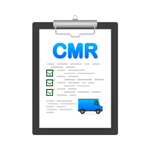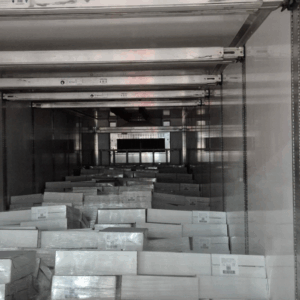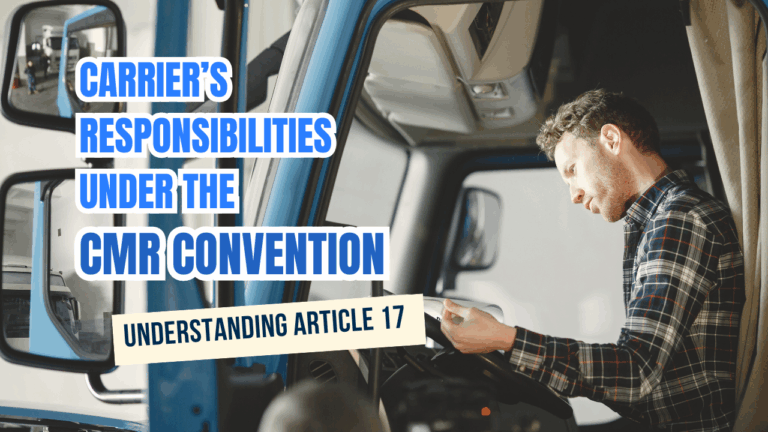We believe that transparency and knowledge are the foundation of strong partnerships. Whether you’re a carrier or a client, understanding your responsibilities and rights under the CMR Convention is essential to avoid disputes and ensure fair handling of claims.
Let’s take a closer look at Article 17 of the CMR, which defines the carrier’s liability during transportation—and the exceptions that may apply.
When the carrier is responsible
Under Article 17(1) of the CMR Convention, the carrier is responsible for the total or partial loss or damage to the goods, and for any delay in delivery, from the moment the goods are taken over until they are delivered to the consignee.
In simpler terms, this includes:
 Loading: ensuring the goods are handled carefully and properly stowed.
Loading: ensuring the goods are handled carefully and properly stowed.
 Transit: maintaining safety, security, and temperature (if required) throughout the journey.
Transit: maintaining safety, security, and temperature (if required) throughout the journey.
 Unloading: delivering the goods in the same condition as received.
Unloading: delivering the goods in the same condition as received.
When the carrier is not responsible
However, Article 17(2) specifies that the carrier is exempt from liability if the loss, damage, or delay was caused by:
- The wrongful act or neglect of the claimant (e.g., incorrect instructions from the sender).
- Defects inherent in the goods (e.g., perishable goods deteriorating naturally).
- Circumstances the carrier could not avoid, and the consequences of which they could not prevent (e.g., extreme weather, road closures, or accidents not caused by negligence).
Additional exemptions under Article 17(4) may include:
- Use of open vehicles requested by the sender.
- Insufficient packing or labeling.
- Handling, loading, or unloading done by the sender or consignee.
 When things get complicated
When things get complicated
One of the most common situations that leads to disagreements, and sometimes claims, is when the cargo arrives shifted or damaged on the pallets.
The carrier often argues that the problem came from improper palletization or weak packaging, while the client may believe it was caused by rough driving or poor handling during transport.
The truth is, such cases are rarely simple. Even when the driver might be right about the packaging, if they accepted the load without making any note on the CMR, the responsibility still lies with the carrier.
From there, things can escalate: insurance companies launch investigations,
expert evaluators are called in to assess the cause, and in some cases, the matter ends up being settled in court.
That’s why understanding responsibilities under the CMR and communicating clearly at every stage, is essential to prevent misunderstandings and protect all parties involved.
 From an insurance agent perspective
From an insurance agent perspective
Comment by Mr. Athanasios Sakaroglou, CEO of Sakaroglou A. & Co KG – Maletschek & Partner Hellas
One important aspect of managing a carrier’s responsibilities under the CMR Convention is ensuring proper insurance coverage. CMR insurance is not just a financial safeguard in case of loss or damage, it also supports the process of determining whether the carrier is actually liable under the Convention.
Our experience in the sector shows that in practice, it is common that liability is not immediately clear. Each incident may require investigation involving legal advisors, surveyors, and other specialists to understand whether the event is linked to circumstances that fall under the carrier’s responsibility or one of the exemptions defined by Article 17.
Quite often, based on the terms of the Convention, it is determined that the insured party is not actually liable.
Even then, the insurance process does not end there. The insurer may need to demonstrate and document the absence of liability, which can require time, technical assessment, and legal support. For this reason, having the right insurance partner and ensuring cooperation among all involved parties are essential to ensure that every case is handled correctly and transparently. This is why it is crucial to have the right partner or insurer. One who provides meaningful support and complete service
This explanation is provided to help carriers and shippers better understand the function of CMR insurance and its role in resolving responsibility-related claims.
In logistics, things move fast and sometimes, unexpected situations arise. A damaged pallet, a delay on the road, a misunderstanding about who was responsible at loading.
At DS Freight Forwarding, we don’t see these moments as conflicts, but as opportunities to support both sides ( our clients and our carriers). Our team investigates every incident carefully to understand what really happened, ensuring that any decision is based on facts, fairness, and experience. We also believe prevention is part of good logistics. We take time to advise on proper packaging, labeling, and loading practices, whenever we can. It is valuable for all parties to be aware of their responsibilities before the journey begins and move with the same awareness and respect for the process.
This is our way to keep your supply chain running smoothly and our partnerships strong!


 When things get complicated
When things get complicated
 From an insurance agent perspective
From an insurance agent perspective
